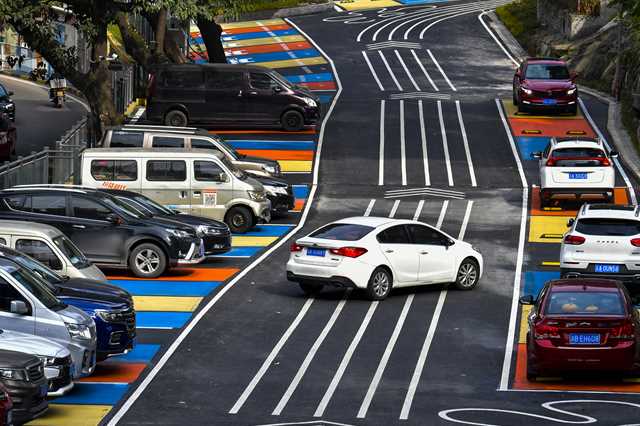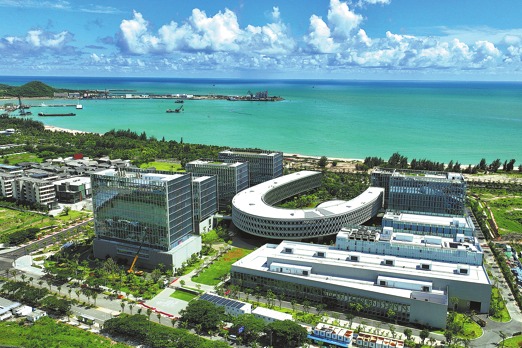Parking lots remain a difficult problem to address for local governments


Editor's note: The parking lot planning is very important in modern city infrastructure and logistics park planning. Problems may be encountered in parking lots planning of logistics park and the parking lots planning ought to keep flexibility, writes a veteran journalist with China Daily.
I was sitting in a restaurant in Causeway Bay, an area of Hong Kong, having dinner with my host, the editor-in-chief of a local newspaper. Suddenly, he said, with due apology, that we need to finish our dinner in an hour or so because the car that drove us to the restaurant was still circling the road around the restaurant, waiting to drop us to our destinations.
"Why doesn't the driver park somewhere?" I said.
"The driver tried but failed. And even if he finds a parking lot, the parking fees can be higher than the cost of burning gas to drive around in circles," he replied.
Our conversation then turned to parking difficulties. I told him that I was surprised to see local friends pay a fee to enter a certain area in the center of Singapore. And he told me how he missed an important interview in Hong Kong because he could not find a place to park his car.
That conversation took place some 20 years ago. I couldn't imagine that 20 years later the Chinese mainland would face the same problem. Statistics show that the mainland is short of parking space for about 50 million cars. Big cities such as Shanghai, Shenzhen and Guangzhou are running short of parking spaces for 1.5-2 million cars each. Worse, each year more than 20 million vehicles are joining the existing fleet of 401.7 million vehicles in the country.
Concerns about carbon emissions, environmental protection, traffic jams and shortage of parking spaces have led many local governments to implement restriction measures such as drawing of lots or auction for a car number plate to limit the number of vehicles. Beijing, for instance, issues only 100,000 vehicle number plates each year through lots, while 2.7 million driving licenses holders are on the waiting list.
Environmental protection concerns can be eased by increasing sale of electric vehicles (EVs). Last year, China sold 6.88 million EVs, making it the top EV market in the world for eight consecutive years. Also, the authorities are trying to reduce traffic jams by adding about 100,000 kilometers of roads and expressways to the country's road network each year.
However, it is difficult for the authorities to increase the number of parking lots. A large population prompted the authorities to build a lot of high apartment buildings to accommodate residents, thus increasing human density in cities. When those buildings were built a decade ago, few families owned cars, so the developers either built smaller parking lots or no parking lot at all.
As a result, residents with cars scrambled to get a permanent parking space. It's not unusual for a basement parking space to be sold for more than 500,000 yuan ($72,531) in Beijing or Shanghai — the money is enough to buy an apartment in smaller cities.
Those who don't own a parking space have to park their cars on the roads nearby if they can find one. And the parking fees can cost them a fortune, 1.5-2 yuan for 10 minutes. A few years ago, they could bargain with the parking attendants to reduce the parking fees. But with the introduction of electric screening equipment, one has to pay at the fixed rate.
The local governments are doing their best to build more parking lots. They are developing available spaces into parking lots, and elevated parking facilities have been built in many residential complexes with government subsidies so more cars can be parked there.
But despite being helpful, such efforts are not enough to solve the parking problem. A recent report by a Beijing district claimed to have added about 5,000 parking spaces last year. But that number is dwarfed by the demand for 2 million more parking spaces in the city.
Facing a seemingly unsolvable problem, governments are encouraging people to use public transport. Huge investments have been made in developing subways and improving surface transport in big cities in the past decades, making Beijing and Shanghai the cities with the two largest subway networks in the world.
Can the convenient public transport system and difficulty in finding a parking space deter people from buying a car? Maybe, or maybe not. It appears the difficulty in finding a parking space in big cities will continue on the mainland as it has been in Singapore and Hong Kong.
The author is former deputy editor-in-chief of China Daily.


































